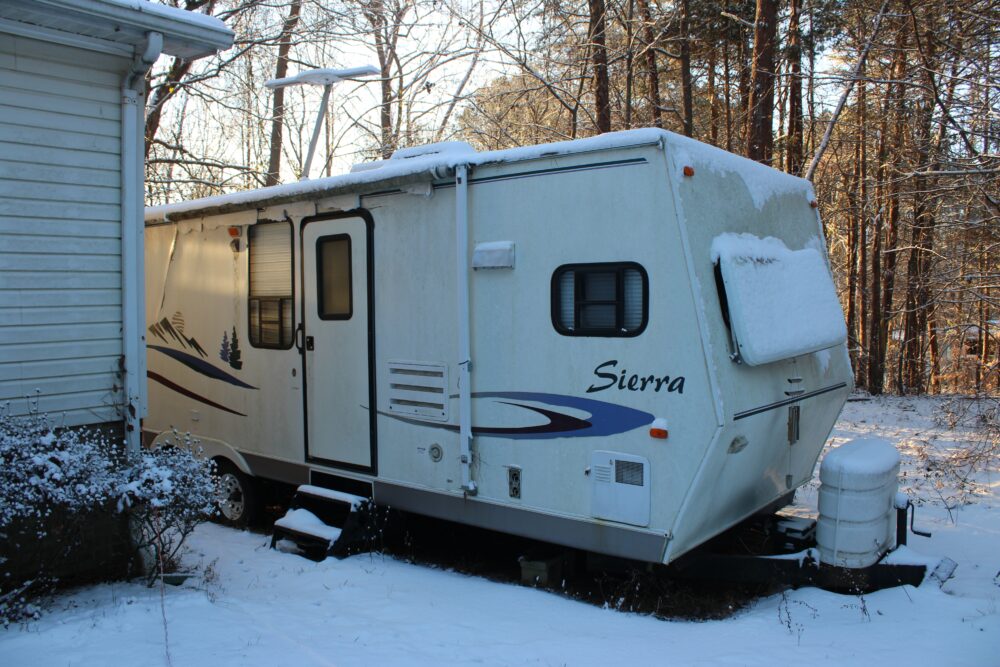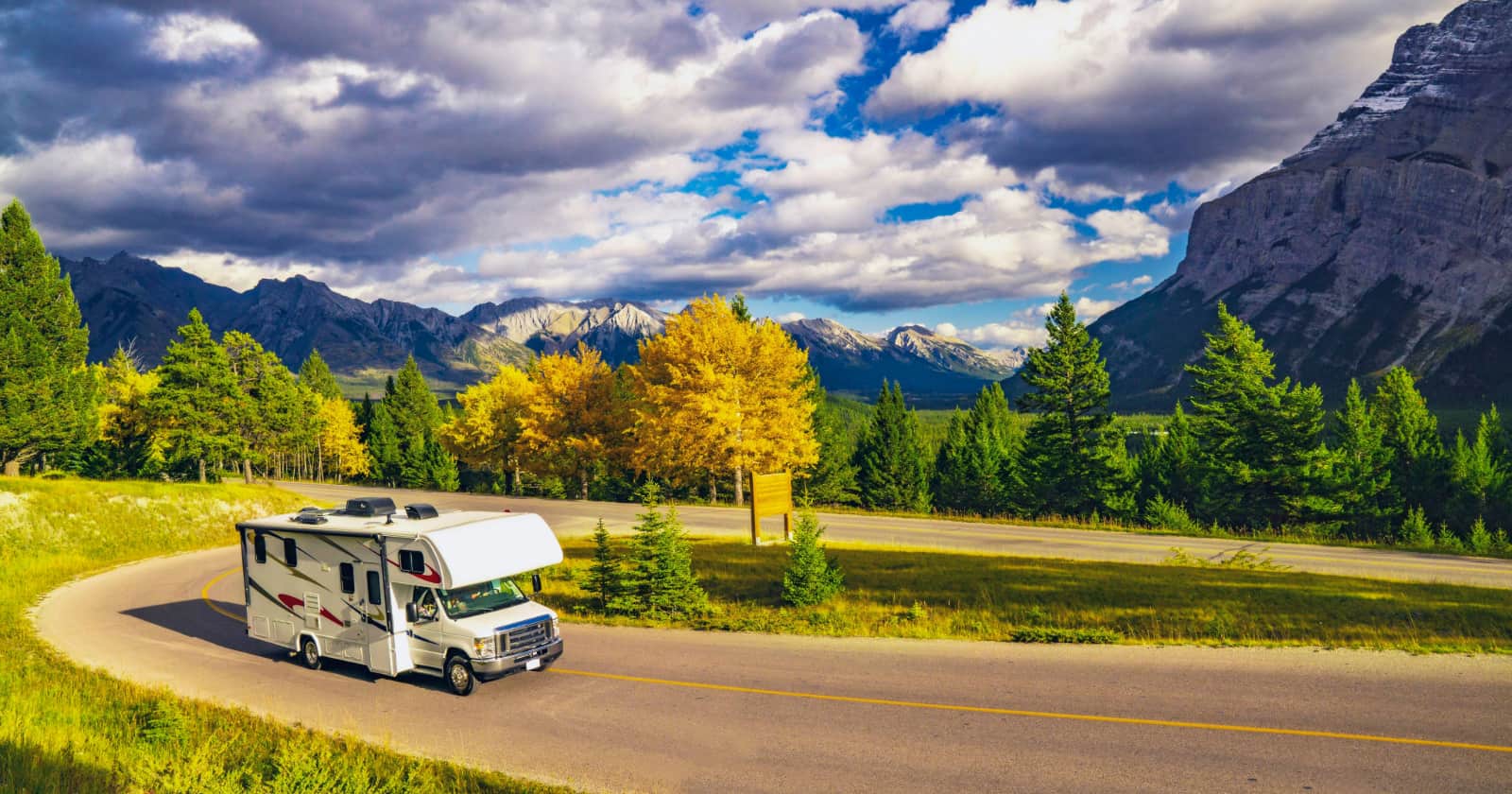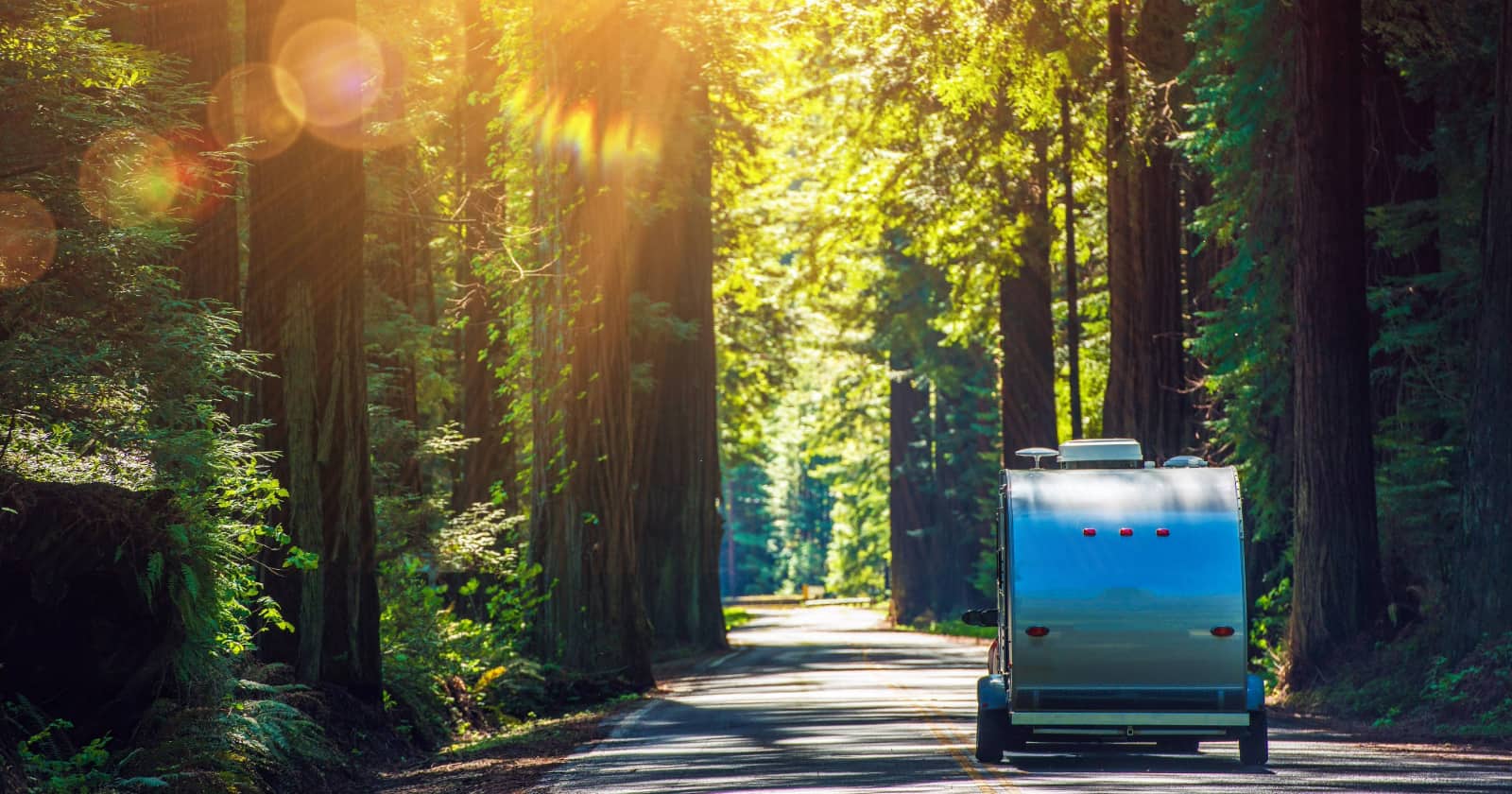
Why Do You Need To Winterize An RV?
Most RV owners have been told just how important winterizing an RV is at one time or another. That said, not everyone fully understands why this task is so important. What happens if you don’t winterize your rig, and how will it affect you?
In this article, we will answer that question so you can get a better understanding of why winterizing your RV is so important. We’ll also give you some options for avoiding these problems in your RV.
Consequences of not winterizing an RV
First, let’s take a look at what can happen if you fail to winterize your RV before the first winter freeze. While you may get lucky and avoid these problems, chances are you’ll see at least one of these issues if your RV goes through a hard freeze and isn’t winterized.
Frozen and burst water lines
The most common problem caused by not winterizing an RV is frozen and burst water lines. This happens when the water in the water lines freezes solid, expands, and bursts the water line. The end result is a leaky mess that requires you to replace the damaged lines entirely, a task that can be tedious and time-consuming.
Leaking water line connections
In some cases, the lines themselves do okay, but the cheap plastic fittings that connect the lines to one another become damaged after freezing. In these cases, you will need to replace the fittings. While this is less expensive than replacing water lines, it is just as tedious.
Cracked toilet parts
When water freezes in the toilet valve, it can cause a crack. This becomes apparent when you go to flush the toilet and end up sending water spraying everywhere.
Another thing that can happen is a cracked toilet bowl. This is rare but indeed possible when enough water is left to freeze in the bowl. It requires a complete toilet replacement. This issue can be totally avoided by making sure the toilet is totally empty of water before storing it.
Split holding tanks
This might be the worst thing that can happen if you don’t winterize an RV: cracked holding tanks. This happens when water is left in the tanks to freeze. The frozen water can expand and crack the tank, even if the tank isn’t full.
Why is it the worst thing? Because cleaning up after a cracked holding tank is disgusting, patching RV holding tanks is nearly impossible, and replacing holding tanks is very difficult and expensive.
The good news is, this one doesn’t happen too often and is easily avoidable.
Damaged water heater
Your RV water heater can be damaged by winter weather as well. This will only happen if the tank is holding water, but it absolutely can happen, even though the tank is metal. Since nobody wants to deal with the expense of replacing an RV water heater, it is very important that you don’t miss emptying the water heater when winterizing an RV.
Other water system damages
The parts of the water system mentioned above aren’t the only parts that can see damage if an RV is not properly winterized. You could also damage things like the water pump and the faucets. If you do forget to winterize your trailer or motorhome, be sure you check every single aspect of your RV water system for damages.
Water damage
The last issue that can be caused by not winterizing an RV is water damage. If there is a leak in the water system that goes undetected while the RV is in storage (or even after it’s taken out) that leak is going to leave water on the floor and walls of the RV. This will soon lead to water damage in that area, and this damage will continue to grow until the problem is taken care of.
Even once the leak is fixed, any water damage that it causes will need to be repaired. This is a difficult job that often requires removing entire walls and large sections of flooring.
How to avoid these issues
Clearly, you definitely don’t want to deal with the consequences of not winterizing an RV. They are costly, time consuming, and can be incredibly tedious to take care of. Not only that, but such damages, when not fixed properly, can make your RV worth less money when it comes time to sell.
How do you avoid these issues? There are a few options.
Winterize in cold climates
The first and most obvious solution is to winterize your RV before the wintertime rolls around. This is actually very easy, and when done properly it will prevent your water system from freezing and prevent damage caused by freezing.
For instructions on exactly how to winterize an RV, be sure to check out this article on the subject. You can also watch the video below.
Prepare for cold if living in your RV
If you are living in your RV in a cold climate and winterizing isn’t really an option, it’s important that you come up with other ways to protect your RV’s water system. There are several ways you can go about this, including using a heated water hose and sewer hose, and/or adding a skirt to your RV to keep the underside well insulated from cold.
See more tips on winter camping here.
Move the RV to a warmer place
The final option is to move the RV to a warmer climate:
- Snowbirds move south with their RVs and stay there for the winter.
- Other people will send their RVs south to be rented out by an RV rental company.
- Still other RV owners choose to store their RV in the south and then head back home to wait out the winter.
Any of these will work. As long as you move to a place that doesn’t see freezing temperatures, your RV will be safe from damage to the water system.
There you have it: everything you ever needed to know about why it’s so important to winterize an RV and how you can protect your RV from freezing weather. Now get out there and do what you can to keep your RV safe before that first bout of winter weather comes rolling through your neck of the woods!
Track your RV maintenance
Make sure you keep track of all your RV maintenance and repairs with an online tool such as RV LIFE Maintenance. Not only can you keep all of your documents in one place, but you’ll also receive timely reminders when maintenance is due to help you avoid costly repairs and potentially serious accidents.



